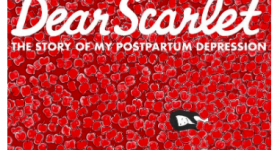She is Tita.
Big sister in Hawaiian.
Aunt in Tagalog.
Aida is a reference to AIDS.
Picture a figure onstage, atop the hills of San Francisco’s Dolores Park. She beckons the crowd with smiling eyes, standing tall as though an invisible crown connects her to the sky. She wears 6’ red heels and a long gown. Gold/bronze sequins fan around her figure like flames. Black hair pulled back in a bun. Is she ballerina or beauty queen – or something else altogether?
She is Tita. Big sister in Hawaiian, or Aunt in Tagalog. Aida is a reference to HIV/AIDS.
I first met Tita in 2005, while I was an intern at San Francisco’s A&PI Wellness Center. Tita taught me about leadership. She showed that it was possible to be fiercely glamorous, compassionate, and committed to community.
In the 1990’s, few if any AIDS resources existed for API LGBTQ communities. During these years, Tita worked at Asian AIDS Project (now A&PI Wellness Center), which formed out of community need. Tita knew she needed to move public health advice beyond just “sticking a raincoat on it.” She created her persona to be an Auntie/advocate/and HIV/AIDS awareness mentor. She wanted to create role models, to highlight API LGBTQ people’s humanity and visibility.
Tita has hosted numerous fundraisers and community events. She MCed RUNWAY, a huge GAPA/Gay Asian Pacific Alliance fundraiser. She hosted the Ms. Tang Tang show, which featured a number of Queer API artists, including D’Lo, Mia Nakano, Kit Yan, and more. She continues to participate in anti-stigma campaigns, as hostess of transgender beauty pageants, and as HIV outreach educator in API bars and community spaces. I see her in so many community settings. Sequin-clad and shimmery, she models respectful modes of interaction, reminding us all how to build community.
As an activist, Tita has seen decades of the HIV/AIDS virus first hand. Haven’t things changed, after more than thirty years? Why is HIV/AIDS activism and education still so important? Tita responded in an email interview:
“There is still stigma and shame, more so than ever, because it has reached global proportions. Let us be reminded that the struggle still exists.”
As an advocate, Tita knows that HIV/AIDS is one of the world’s “most substantial health pandemics.” Despite changes in medication, which allow people to live longer lives, the epidemic still exists. The API and LGBTQ communities have witnessed hundreds of thousands of funerals. That loss cannot be easily forgotten. Until there is a cure, Tita Aida will be out in force, educating, supporting, and helping to prevent more causalities from HIV/AIDS.
Tita is also passionate about supporting Transgender rights. She mourns those lost to hate crimes, and thinks we can honor their memory through present-day Trans activism.
Every young queer femme needs a role model, or a few. Tita exemplifies community leadership with grace. A role model when our community had none, she notes that she “has no regrets.” Though lesser known on the national scene, she says “…it always makes a difference with the one individual that I’m helping. That’s good enough for me.”
Everyone should find out more about this San Francisco community icon – regardless of location, you can find her on YouTube and Twitter
***
Celeste Chan is a writer and artist/organizer, schooled by DIY and immigrant parents from Malaysia and the Bronx, NY. A VONA and Lambda Literary fellow, her writing can be found in As/us journal, Feminist Wire, and Hyphen blog. Her films have screened in CAAMFest, Digital Desperados, Entzaubert, Frameline, MIX NYC, National Queer Arts Festival, and Vancouver Queer Film Festival, among others. Chan has presented and curated work in the SF Bay Area; New York City; Seattle, WA; Vancouver BC; Glasgow SCT; Bloomington, IN; and beyond. Alongside KB Boyce, she’s honored to be the co-founder/director of Queer Rebels, a queer and trans people of color art project based in San Francisco, CA. www.queerrebels.com and www.celestechan.com









Comments